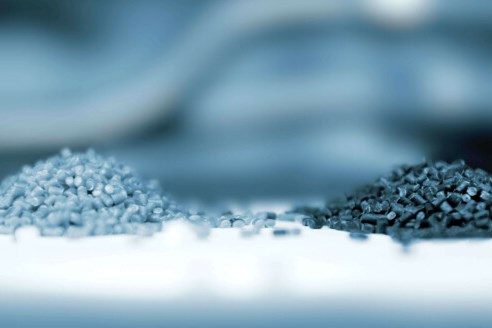Reactive Recycling Additives Gets Scientific Validation
Nexam’s patented technology demonstrates ‘remarkable’ capabilities in repairing polymers degraded during recycling cycles.

has announced the scientific validation of its breakthrough Reactive Recycling additives which are designed to revolutionize PP recycling. The company’s patented technology demonstrates ‘remarkable’ capabilities in repairing polymers degraded during subsequent recycling cycles, thereby addressing a critical challenge in the plastics industry, and enabling sustainable and efficient recycling processes.
The efficacy of Nexam Chemical's additive was rigorously evaluated in a recent scientific study published in the journal “Polymer Degradation and Stability.” Conducted by researchers from the Department of Applied Science and Technology at Politecnico di Torino, Italy, the study investigated the impact of thermomechanical degradation on PP microstructure during multiple extrusion cycles. Results demonstrated that the introduction of Nexam Chemical's additive effectively prevented the decrease in molecular weight of reprocessed PP, while also inducing favorable melt structuring phenomena.
Already commercially available under the brand name Reactive Recycling, these additives present a versatile solution for both postindustrial(PIR) and postconsumer (PCR) mechanical recycling processes. By preserving the integrity of recycled PP, these additives open new possibilities for waste valorization and the creation of high-quality recycled products. Says Dr. Alberto Frache, corresponding author of the study, "Our research indicates that Nexam Chemical's additive offers a promising pathway for achieving recycled PP with modulable flow characteristics and enhanced processability. This advancement holds significant implications for the circular economy, promoting sustainable practices and resource efficiency."
Related Content
-
Let's Take a Journey into the World of Molding Thermosets – Part 1
There are many fundamental differences between thermosets and thermoplastics, from the way raw materials are furnished to the molder and the process in which parts are molded.
-
Prices Generally Trending Upward for the Five Commodity Resins
Scheduled and unscheduled production disruptions, and projected higher feedstock costs could be key factors.
-
Prices for PE, PS, PVC, PET Trending Flat; PP to Drop
Despite price increase nominations going into second quarter, it appeared there was potential for generally flat pricing with the exception of a major downward correction for PP.


